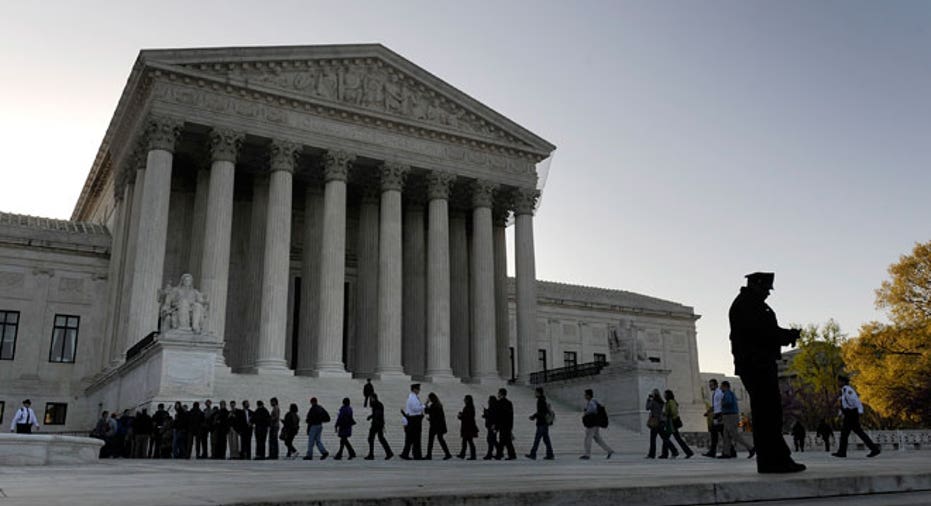Post- Obamacare Ruling, Small Business Optimism Remains in Recession Territory

In its first index since the Supreme Court’s Obamacare ruling in June, the National Federation of Independent Business (NFIB) Small Business Optimism Index took another dip. The July index fell 0.2 points to 91.2, still holding steady in recession territory.
In its first index since the Supreme Court’s Obamacare ruling in June, the National Federation of Independent Business (NFIB) Small Business Optimism Index took another dip. The July index fell 0.2 points to 91.2, still holding steady in recession territory.
The index fell less than expected, the NFIB stated, and hit its lowest point during the recession in July of 2009 at 86.5. The highest level the index has reached during the recession was in February 2012 at 94.5. Before the recession, the index would often average above 100. The survey was compiled from the responses of 1,803 randomly sampled NFIB members.
"Congress has recessed without a plan to resolve our calamitous debt/spending cycle or a lasting answer to our dangerous fiscal cliff," NFIB chief economist William Dunkelberg said in a statement. "Meanwhile, the White House has presented us with some 'fuzzy math,' asserting that only three percent of small businesses will be impacted by planned tax increases.
That's not true. The denominator in that calculation is wrong—it should be the 6 million employer firms that provide jobs to half the private sector workforce, meaning that more like 15 percent of small businesses can expect higher taxes in January. The lack of meaningful actions to address tax reform in Washington adds to the certainty of sluggish growth for the remainder of 2012, and the uncertainty of what will come in 2013."
With so much media coverage ahead of the Obamacare decision, Dunkelberg said respondents likely had a feeling the law would be upheld, therefore the drop from June to July wasn’t as large as originally estimated.
The index found more business owners indicated business conditions to worsen for the next six months, and also believe real sales volumes will be lower in the next three months. Only five percent of business owners believe now is a good time to expand their business, a historically low number.
Fifty-four percent of business owners reported making capital outlays, up 2% over the past six months. Of those that made such expenditures, 38% spent on new equipment, 19% purchased vehicles and 14% improved or expanded facilities. Those planning to make outlays over the next six months held steady at 21%.
Poor sales was named the top problem for 20% of business owners surveyed. The net percent of small businesses reporting higher nominal sales over the past three months, seasonally adjusted, fell four points to -9%. This was after losing seven points in June’s index.
The reported net change in job creation was -0.04%, but was better than June’s rate of -0.11%. Before June and July, job creation was rising from December to May and were all either zero or positive. Seasonally adjusted, 10% of businesses added an average of 3.0 workers per firm, while 11% reduced employment by 2.3 workers per firm. The remaining 79% made no net change in employment.
The report found 48% of business owners did attempt to hire in the last three months, and 38% found few or no qualified applicants.



















